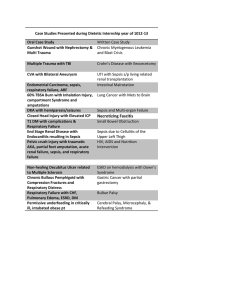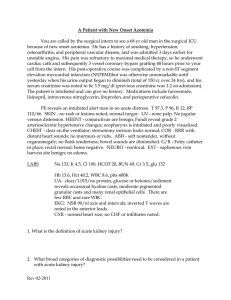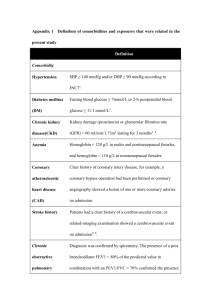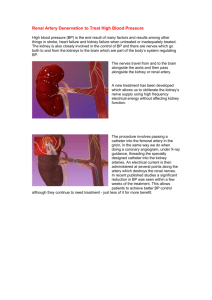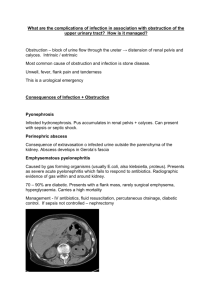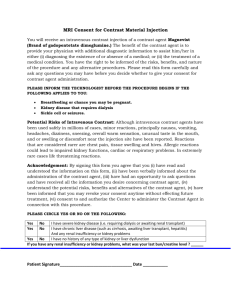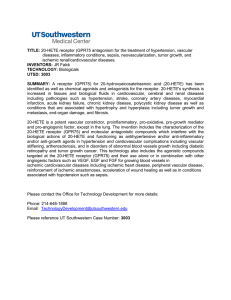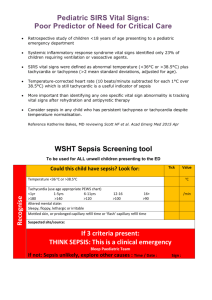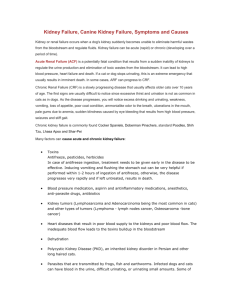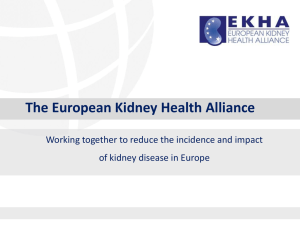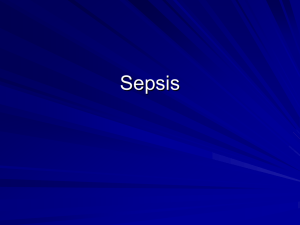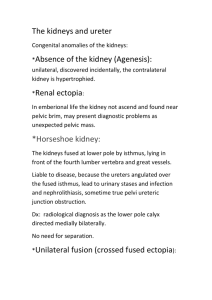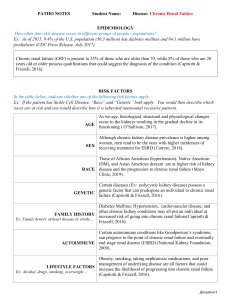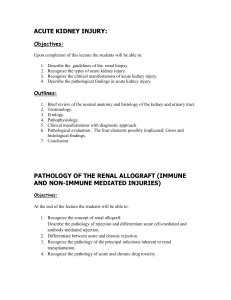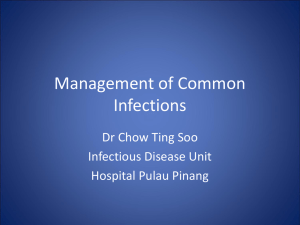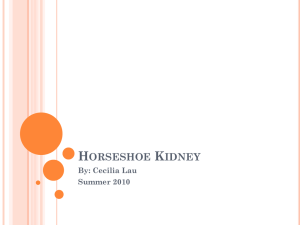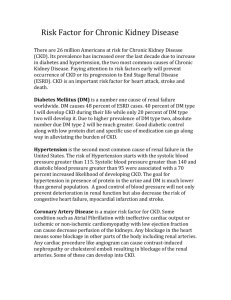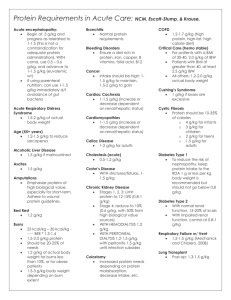Severe Sepsis and the Longitudinal Outcomes and Risk of
advertisement
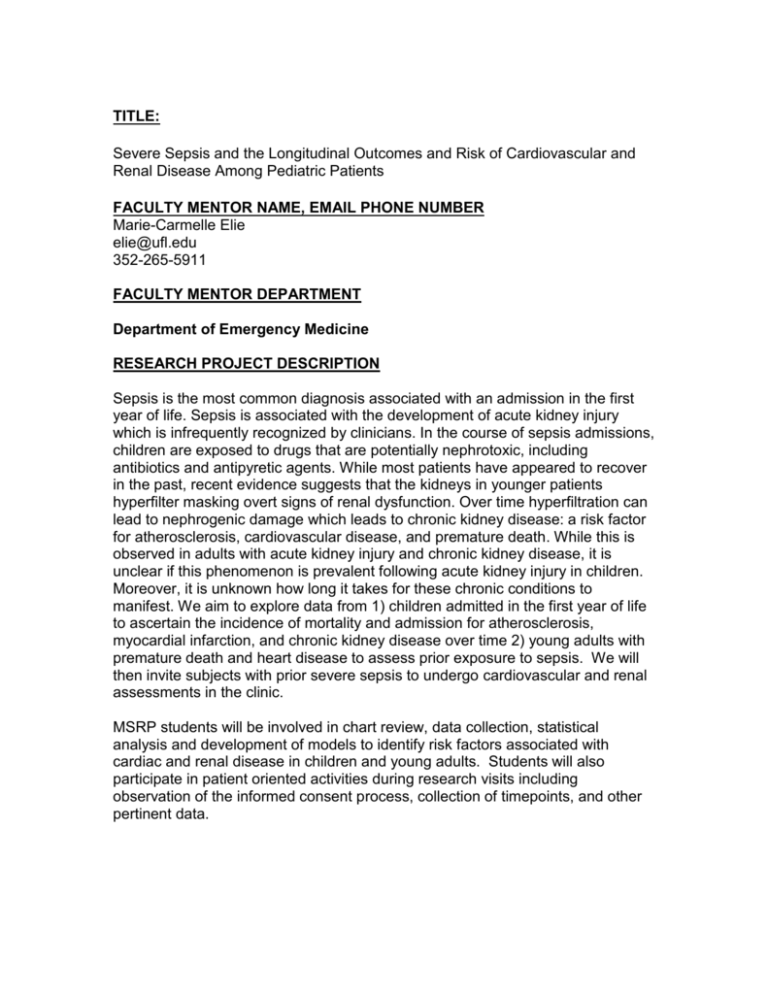
TITLE: Severe Sepsis and the Longitudinal Outcomes and Risk of Cardiovascular and Renal Disease Among Pediatric Patients FACULTY MENTOR NAME, EMAIL PHONE NUMBER Marie-Carmelle Elie elie@ufl.edu 352-265-5911 FACULTY MENTOR DEPARTMENT Department of Emergency Medicine RESEARCH PROJECT DESCRIPTION Sepsis is the most common diagnosis associated with an admission in the first year of life. Sepsis is associated with the development of acute kidney injury which is infrequently recognized by clinicians. In the course of sepsis admissions, children are exposed to drugs that are potentially nephrotoxic, including antibiotics and antipyretic agents. While most patients have appeared to recover in the past, recent evidence suggests that the kidneys in younger patients hyperfilter masking overt signs of renal dysfunction. Over time hyperfiltration can lead to nephrogenic damage which leads to chronic kidney disease: a risk factor for atherosclerosis, cardiovascular disease, and premature death. While this is observed in adults with acute kidney injury and chronic kidney disease, it is unclear if this phenomenon is prevalent following acute kidney injury in children. Moreover, it is unknown how long it takes for these chronic conditions to manifest. We aim to explore data from 1) children admitted in the first year of life to ascertain the incidence of mortality and admission for atherosclerosis, myocardial infarction, and chronic kidney disease over time 2) young adults with premature death and heart disease to assess prior exposure to sepsis. We will then invite subjects with prior severe sepsis to undergo cardiovascular and renal assessments in the clinic. MSRP students will be involved in chart review, data collection, statistical analysis and development of models to identify risk factors associated with cardiac and renal disease in children and young adults. Students will also participate in patient oriented activities during research visits including observation of the informed consent process, collection of timepoints, and other pertinent data.
